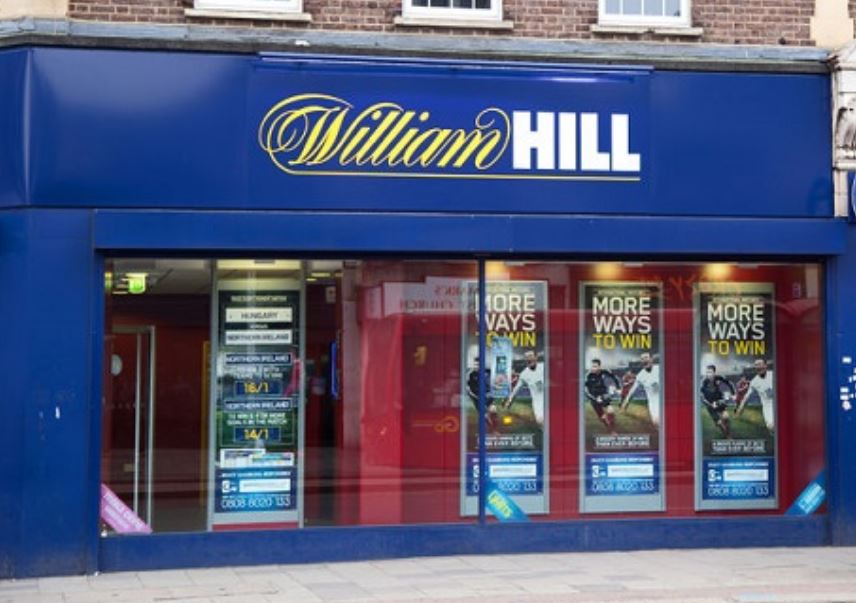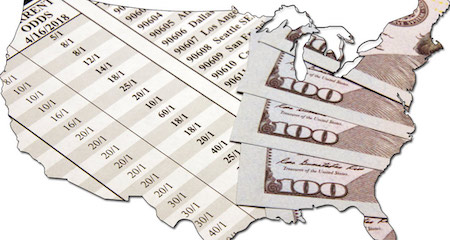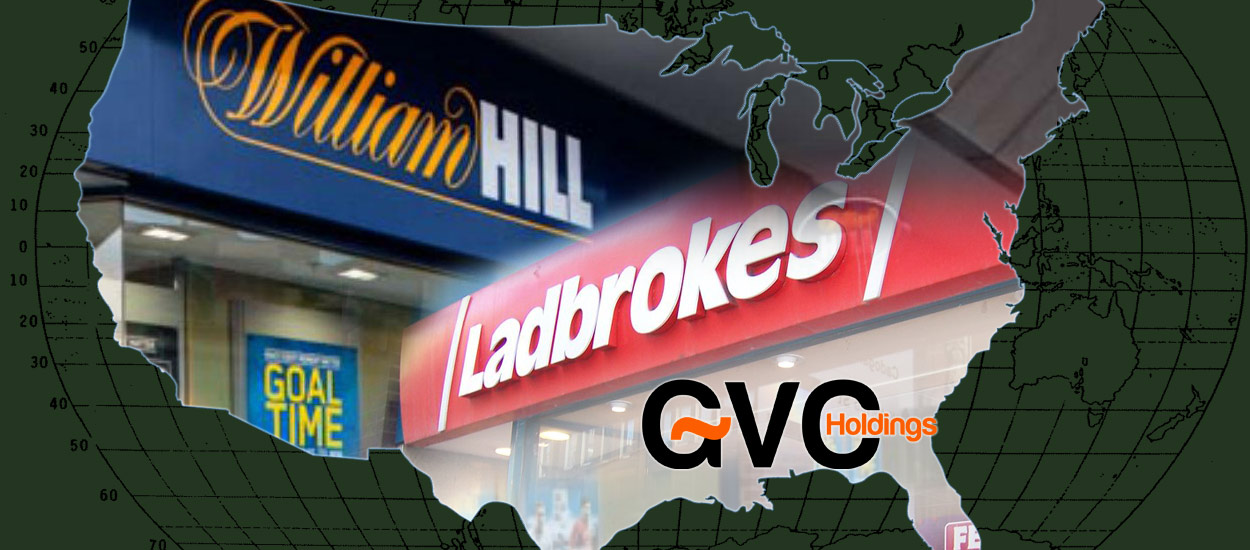Overseas companies are laying claim to the U.S. sports betting market
When Internet wagering became a reality in the late 1990s there was talk among the UK sports books as to whether it was worth trying to target the U.S. market or whether they should wait until there was more advantage to wait for clarity on the legality of sports betting. While the potential revenue from sports betting in the U.S. was enormous, the passing of PASPA by the U.S. federal courts made it a dangerous endeavor. Industry estimates indicated that sports betting revenue in the U.S. would far surpass what was bet in the UK if the United States ever legalized it, but the risk was also undeniable given the current anti-gambling sentiment stateside.
Some UK companies like Party Gaming and Sportsbetting.com decided to take the risk and offer their products to the U.S., but the majority of the companies decided to sit on the sideline figuring that if sports betting was ever legalized state side, they couldn’t risk being ostracized in the future. As it turned out the decision to stay on the sidelines was a smart one.
After the passing of the UIGEA Party Gaming had to pay the DoJ more money than it made from Americans in order to not be blacklisted and other companies paid off the DoJ as well. Furthermore, PokerStars not only agreed to pay a huge fine to the DoJ for catering to American citizens, but they also agreed to purchase Full Tilt Poker to get the DoJ off their backs, even though Full Tilt was redundant. And event still PokerStars is being blacklisted by some states because they are deemed "bad actors" for catering to the U.S. market, despite being exonerated by the DoJ. And companies like Mansion and Bowman’s International decided to not even bother going further in a U.S. bid. According to reports both companies knew that the fines would be so high that it made no sense. Mansion became a casino only site in the U.K., while Bowman’s sold their operations to Bet365. Some UK books, however, did not completely forego the U.S. market. Betfair bought out TVG horse racing in 2009 for $50 million and William Hill started up a Nevada sports betting operation after acquiring Brandywine Bookmaking, which ran the Lucky’s brand of books in 2011, American Gaming which ran Leroy’s Sportsbooks in 2012 and Club Cal Neva in Reno in the same year for a total of $53 million. The goal for each was to have a head start over competitors should the U.S. reverse the law prohibiting sports betting. Either way, both companies had their UK operations to fall back on, but one thing neither company could foresee was the complete overhaul of the industry in recent years.
Some UK books, however, did not completely forego the U.S. market. Betfair bought out TVG horse racing in 2009 for $50 million and William Hill started up a Nevada sports betting operation after acquiring Brandywine Bookmaking, which ran the Lucky’s brand of books in 2011, American Gaming which ran Leroy’s Sportsbooks in 2012 and Club Cal Neva in Reno in the same year for a total of $53 million. The goal for each was to have a head start over competitors should the U.S. reverse the law prohibiting sports betting. Either way, both companies had their UK operations to fall back on, but one thing neither company could foresee was the complete overhaul of the industry in recent years.
Revenues in the UK were starting to slow down around 2007, but the industry was stable and growth remained fairly consistent for years after. Even still, it be came clear that the revenues recognized in the early to mid 2000s were never going to materialize again. And in 2014 the UK Gambling Commission (UKGC) issued new rules that ate dramatically into industry revenues. The UKGC increased the tax on gross profits, required companies to pay taxes on all bets from UK citizens regardless of where the companies are physically located and created more stringent rules on advertising, promotions and methods of payments and maximum wagers.
Looking around the globe
Consequently, it was becoming clear to many UK companies their future prospects lay elsewhere. This led to a series of UK mergers to free up capital to use in other endeavors, which included Ladbrokes merging with Coral, eventually bought by GVC Holdings; Paddy Power merging with Betfair in what is now known as Flutter Entertainment; and Stan James merging with Unibet. As well, William Hill proposed to buy out 888 Gaming for $3 billion, but William Hill backed out after realizing that the UK was not going to be its future focus. And several smaller foreign companies that entered the UK market with hopes of huge profits shut down in 2019 realizing their dreams were unlikely to materialize in the current market. Furthermore for the first time ever revenues in the UK actually declined was in 2019 thanks to UKGC rules and a sharp decline in horse race betting. To make matters worse almost every UK company has been fined by the Gambling Commission for violations of its rules. William Hill was fined £6.2 million in 2018 for what the Commission calked systematic failures to prevent money laundering and problem gambling. And the climate keeps getting worse as various websites and political groups say that gambling is ruining lives throughout the UK and are calling for more restrictions. The biggest one introduced to address the issue which severely cut into profits was a drop in maximum wagers on fixed betting machines, located at physical betting shops, from £100 per bet to £2 per bet. Focus on the United States
Focus on the United States
As a result of the changing realities in the UK companies are looking elsewhere for growth and the main focus seems to be the United States. What was once seen as the danger zone is now seen as the land of opportunity. The repeal of PASPA in 2018 and the ongoing legalization of sports betting by individual states have created opportunities that were seen as only a pipe dream 20 years ago. William Hill, with the head start it got in Nevada has become a major player in other states, including New Jersey and is now projected as the first billion dollar U.S. sports betting company. Flutter Entertainment bought FanDuel for $158 million in 2018 for a 61% stake which it has used to introduce sports betting in various states including New Jersey, Pennsylvania, West Virginia and Indiana and it has indicated it was going to buy The Stars Group for $7 billion soon to take advantage of the joint venture between Stars and Fox Sports. And GVC Holdings began looking at opportunities to get into sports betting in the U.S. and did so by partnering with MGM and Yahoo in 2018, with an official launch in 2019.
Under the agreement, both MGM and GVC contributed $100 million to Yahoo to power sports betting and create live streaming and interactive sports betting opportunities for sports bettors using the search engine’s website and app. Bets are made on the BetMGM website. According to sources MGM believed that GVC had the history and knowhow to create a successful sports betting operation that would have taken MGM years to develop on its own. And similarly, William Hill signed an agreement with CBS just last week which allows William Hill to be the official provider of sports betting odds across the CBS channels and websites. And with CBS as the main host for March Madness, the deal could be significant. Terms of the deal were not disclosed. Apparently, the companies all believe that traditional methods of advertising and promotions will not work in the U.S. and the key is to partner with media companies who have far more clout. Terms of the deal between William Hill and CBS were not disclosed.
So it is quite mesmerizing how quickly the sports betting industry has changed. Only two to three decades ago sports gamblers looked at the UK market in envy and now things are reversed. Current projections indicate that sports betting is a $6 billion industry in the UK, while the U.S. should soon approach about $8 billion, and if things go according to Hoyle the U.S. sports betting market could be triple that of the UK within a few years. This may be bad news for some books in the UK, but for companies like William Hill and Flutter Entertainment things look quite rosy and for that they can thank their lucky stars - and stripes!
Read insights from Hartley Henderson every week here at OSGA and check out Hartley's RUMOR MILL!







































